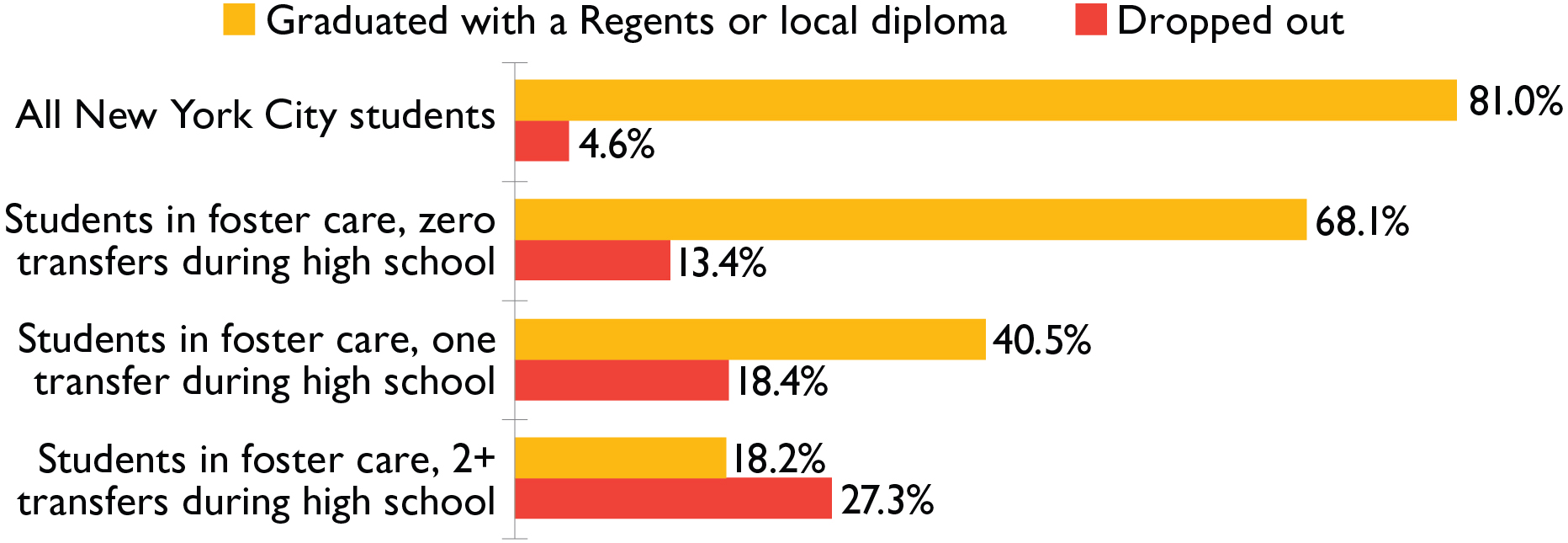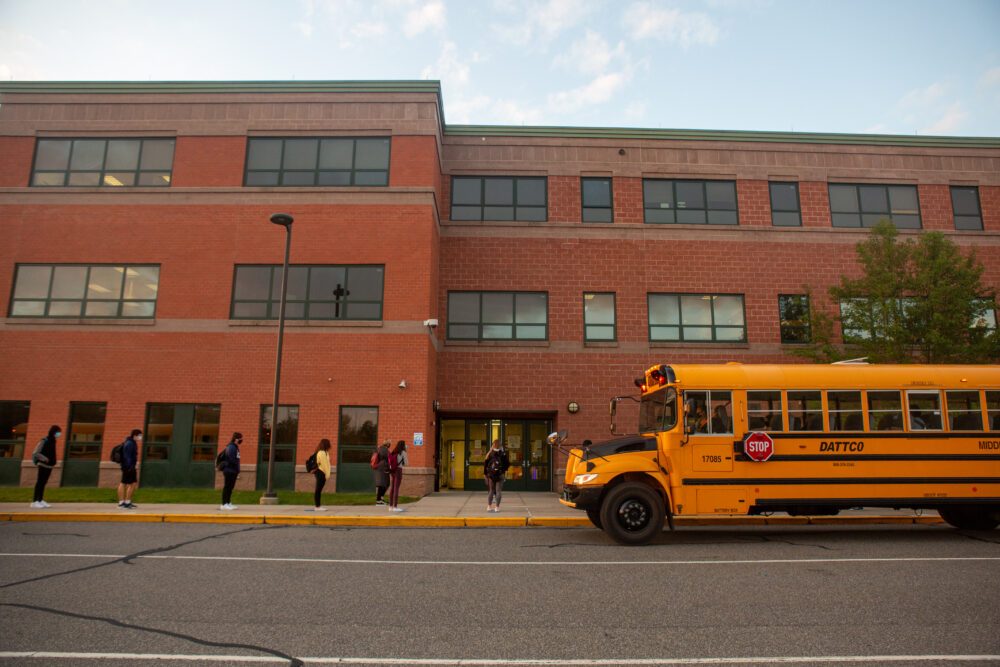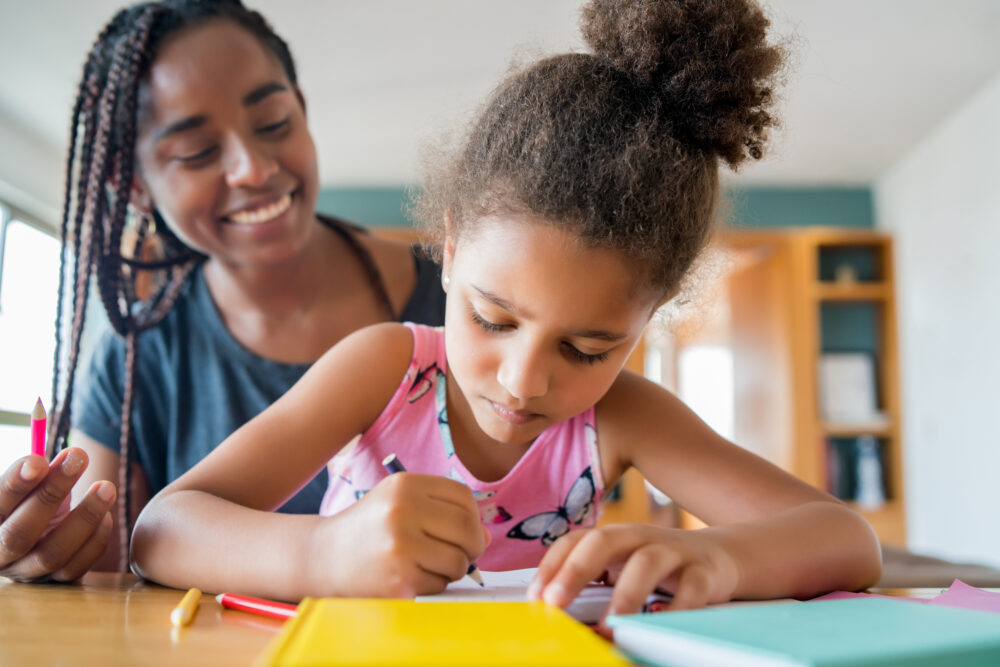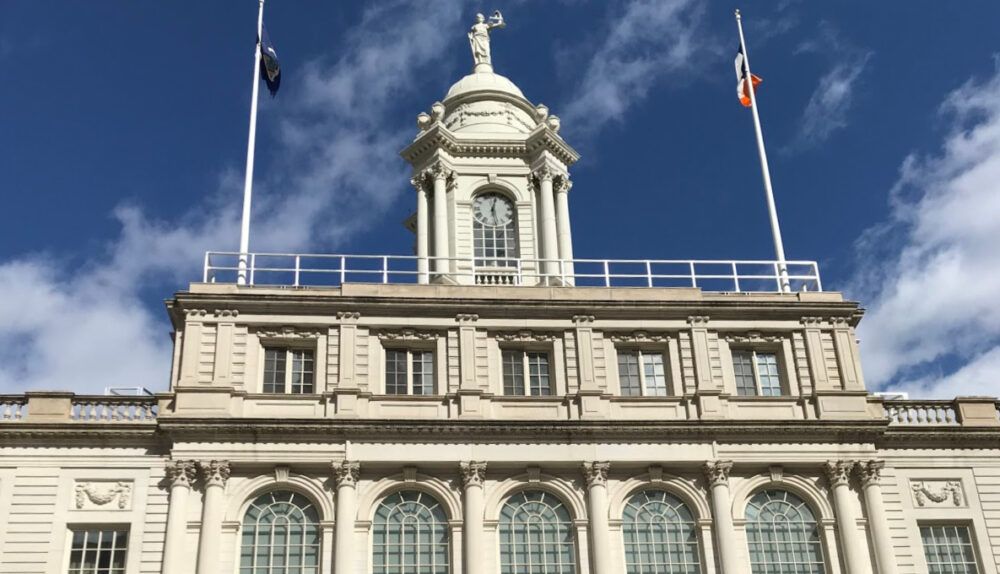Расширяя потенциал: следующие шаги по улучшению образовательных результатов учащихся, находящихся в приемных семьях
В этом отчете за январь 2023 года представлен обзор текущего — и тяжелого — состояния образования учащихся, находящихся в приемных семьях в Нью-Йорке. В отчете анализируются данные города, полученные по запросу Закона о свободе информации (FOIL), и даются рекомендации о том, как город может лучше поддерживать учащихся, находящихся в приемных семьях, теперь, когда новая команда DOE по приемным семьям работает.

Each year, roughly 7,500 New York City students spend time in foster care. This group has historically been overlooked in school reform efforts, despite having some of the most complex educational needs and bleakest academic outcomes of any student population.
In January 2023, Advocates for Children of New York (AFC) released a new report, Расширяя потенциал: следующие шаги по улучшению образовательных результатов учащихся, находящихся в приемных семьях, providing an overview of the current — and dire —state of education for students in foster care in New York City. The report, which analyzes City data obtained through a Freedom of Information Law (FOIL) request, finds:
- Over 40% of students in foster care are classified as students with disabilities, more than twice the Citywide rate, and they are over-represented in segregated special education settings.
- During each of the 2016–17 through 2020–21 school years, roughly half of all students in foster care were chronically absent; between one in six and one in nine students in care missed more days of school than they attended.
- Pre-pandemic, the NYC Department of Education (DOE) issued suspensions to students in foster care at almost four times the rate at which it issued suspensions to City students overall.
- Students in foster care in grades 3–8 are more than twice as likely to receive the lowest possible score on the New York State tests—meaning they are performing significantly below grade level—than they are to score proficient. According to the 2017, 2018, and 2019 exams, nearly 85% of students in care are not proficient in math and four out of five are not reading proficiently.
- Only 40.2% of students who entered ninth grade in 2017 and spent time in foster care while in high school graduated in four years, less than half the Citywide rate; one in five students with foster care experience during high school dropped out, more than quadruple the Citywide rate.
- Academic outcomes for students in foster care who transfer schools during the year are even more alarming: of students who started 9th grade in 2017, spent time in the foster system while in high school, and transferred schools two or more times, a greater percentage dropped out (27.3%) than earned a diploma (only 18.2%) in four years.

«When the City removes a child from their home, the child is separated from parents, siblings, pets, and other loved ones, and often placed in an unfamiliar neighborhood with caregivers who are complete strangers. No matter the circumstances, this is a deeply disruptive and traumatic event in a young person’s life, making access to a stable, sound education tremendously important.”
Ким Свит, исполнительный директор организации «Защитники прав детей Нью-Йорка»
Even though New York City has legal custody of children in foster care and has assumed responsibility for their well-being, this population has frequently been overlooked. Indeed, until recently, there was not a single staff member at the DOE focused solely on students in the foster system. This past fall, the DOE took the crucial step of hiring a small team of staffers dedicated to supporting students in foster care, representing an important opportunity to begin to turn the tide for how the City educates this group of students. Today’s report makes recommendations for how New York City can better support students in foster care now that this new team is up and running.
«If this group of students comprised their own school district, it would be larger than almost 90% of all other districts in New York State. But it would be a district in which barely one in five students is reading proficiently; less than half graduate high school in four years; and 38% of older youth are absent from school more often than they attend.”
Erika Palmer, Supervising Attorney at AFC
As the report shows, a top priority for the DOE’s new Foster Care Team should be providing training for educators and school staff that increases their capacity to understand and address the unique needs of youth in the foster system. Other key recommendations from the report include guaranteeing door-to-door transportation for students in foster care; improving communication between schools, families, and foster care agencies; ensuring parents, foster parents, and agency staff have timely access to education records for students in foster care; ensuring students in foster care can access school-based behavioral and mental health services; and using trauma-informed practices and alternatives to suspension in schools. Given the importance of having accurate data when developing solutions to address the issues raised in this report, the report also recommends amending the City’s education data reporting laws to include students in foster care as a distinct group, as a recently introduced City Council bill would require.
“Having served as a foster parent and as an educator, I know all too well the challenges faced by children in foster care, and I take the troubling findings of this new report very personally,” said Council Member Rita Joseph, Chair of the New York City Council Committee on Education. “It’s clear we need to shine a light on educational outcomes for students in the foster system, and I look forward to moving forward the bill I introduced last month to require the DOE to publicly report data on students in foster care when they report on other student groups.”
“Youth in the foster system have enormous potential that too often goes unrealized because the systems charged with their care and education have failed to meet their needs,” said Erika Palmer. “The dire trends we see in attendance, exclusionary discipline, and academic achievement are by no means inevitable, and we’re excited to work with the DOE’s new Foster Care Team to make NYC’s schools a model of support for students in foster care. Youth in care deserve nothing less.”
-
Посмотреть пресс-релиз в формате PDF
January 25, 2023
Освещение в СМИ
-
NYC public schools fail children in foster care: report
-
New Report Highlights Ongoing Challenges for NYC Students in Foster Care
-
Advocates for Children report: Foster kids struggling in NYC education system
-
Report: Foster care students in NYC plagued by chronic absenteeism, suspensions, dropouts


